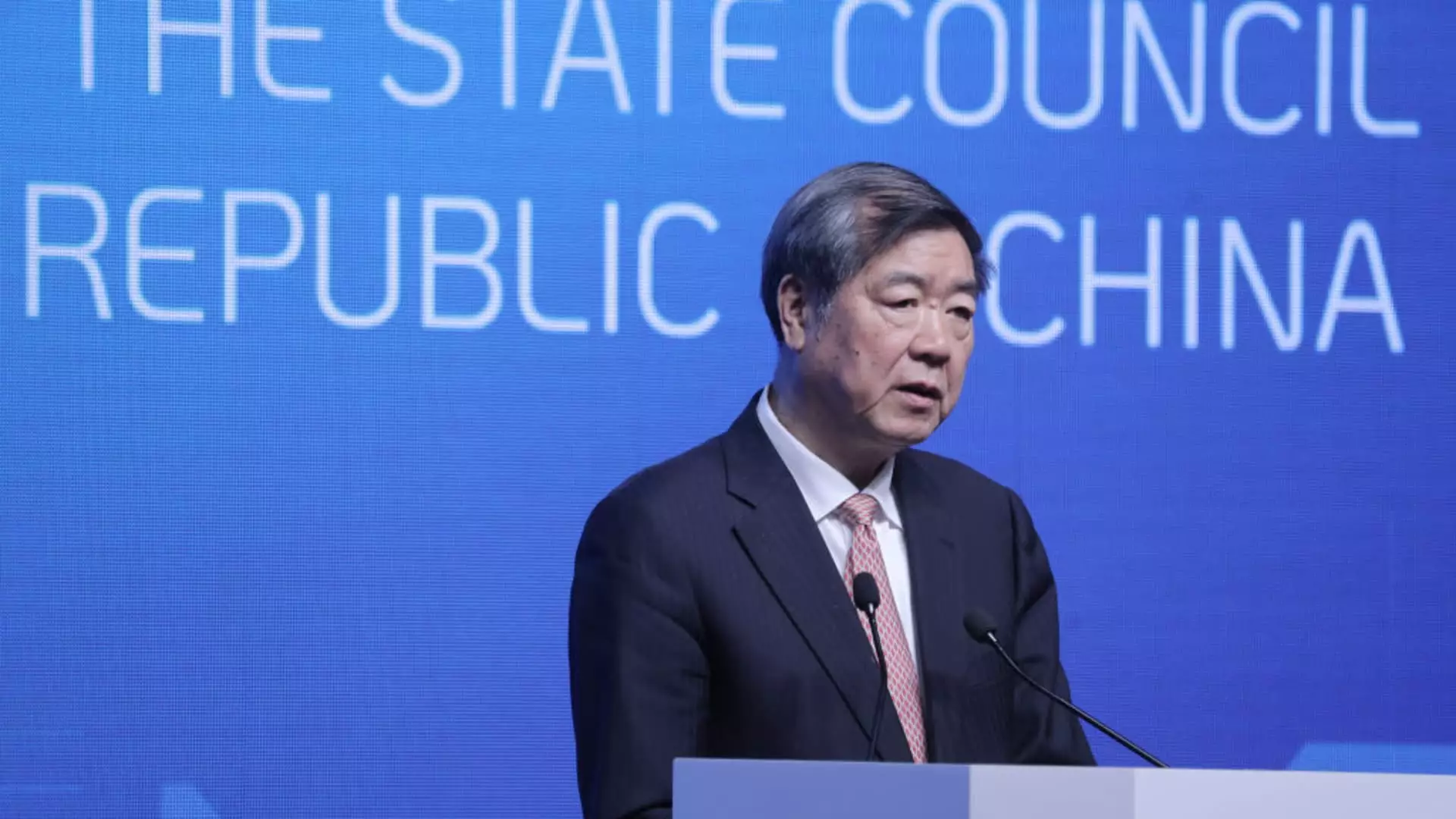On a recent stage at the Global Financial Leaders Investment Summit, Chinese Vice Premier He Lifeng put forth a compelling vision for enhancing Hong Kong’s economic landscape. The Vice Premier emphasized the necessity to invest in the city’s innovative capacities and to craft favorable financial policies that would augment its standing as an international financial hub. This commitment resonates strongly with the central government’s pledge to “explore and implement” new strategies aimed at revitalizing Hong Kong’s global financial relevance—an acknowledgment of the city’s pivotal role in the broader Chinese economy.
Beijing has faced significant challenges recently, including internal economic pressures and declining foreign investments. He Lifeng’s statements signify an understanding that Hong Kong’s prosperity is an integral part of China’s own economic stability. By reaffirming the government’s dedication to stimulating the local economy, He highlighted optimism—that “the upward trajectory of the economy is more certain.” Such confidence is essential for investors and stakeholders who have witnessed a downturn in activity across financial markets.
The remarks by Li Yunze, the minister of China’s National Financial Regulatory Administration, during a panel discussion following He’s speech, underscore the necessity for Hong Kong to utilize strategies rooted in both its mainland connections and global relations. He announced that nearly 80% of businesses from mainland China, looking for offshore listings, find their way to Hong Kong. This statistic speaks volumes about the interdependence of Hong Kong’s future and China’s economic health.
Moreover, the continued push for policies aimed at attracting foreign investments reveals a persistent recognition of Hong Kong’s unique position. Despite an ongoing trend of multinational banks scaling back operations in the region, reports suggest that Hong Kong is persistently working to create a more favorable investment climate. Wu Qing, head of the country’s securities regulator, declared that ongoing efforts would focus on enhancing foreign investment inflows—an essential strategy to improve capital market conditions in this beleaguered financial center.
Hong Kong’s financial markets have experienced noticeable challenges, with the Hang Seng Index being reported as the worst-performing major index last year and continuing a four-year streak of declines. Particularly alarming is the 16% drop in proceeds from initial public offerings (IPOs) and follow-on sales noted in the first half of this year, as reported by LSEG data. With financial activities dwindling, it has raised questions about the city’s future stability and attractiveness as a prime investment hub.
However, recent assurances from the Hong Kong Stock Exchange’s operators indicate a potential turning point, especially in the third quarter following the implementation of new stimulus measures by Beijing. This revival could spark renewed interest and stability for investors who have been cautious amid a challenging economic backdrop.
Notably, measures taken earlier this month by Chinese authorities, such as lowering the capital thresholds for foreign investors, reveal an eagerness to adapt to global financial standards and encourage international participation in Hong Kong’s markets. These regulatory changes are anticipated to open new avenues for investment, as foreign individuals can now hold stakes in publicly listed enterprises. This move not only invites foreign capital but also enhances Hong Kong’s integration into the global financial ecosystem.
Adding a layer of reassurance, PBOC governor Pan Gongsheng reiterated commitments to maintaining an accommodating monetary policy and fostering mutual growth between domestic and foreign markets. This dual approach aims to stabilize the economy while appealing to global investors, thus reinforcing Hong Kong’s position as an accessible gateway to mainland Chinese markets.
The financial summit hosted a spectrum of representatives from major banks like HSBC, Standard Chartered, and Citigroup, highlighting the strong interest from the international financial community in Hong Kong’s recovery plan. Moving forward, the city sits at a crossroads: it must innovate and adapt to changing circumstances while harnessing support from both the Beijing government and its rich network of global ties.
The recent pronouncements from Vice Premier He Lifeng and supporting officials signal a multi-faceted approach to rejuvenate Hong Kong’s economy—a blend of innovation, strategic partnerships, and reforms aimed at bolstering investor confidence. As Hong Kong charts its path forward, the responses from both local and international stakeholders will be fundamental to its success as a financial powerhouse. The city’s ability to evolve amidst challenges will ultimately define its future as an indispensable financial hub in Asia and beyond.


Leave a Reply